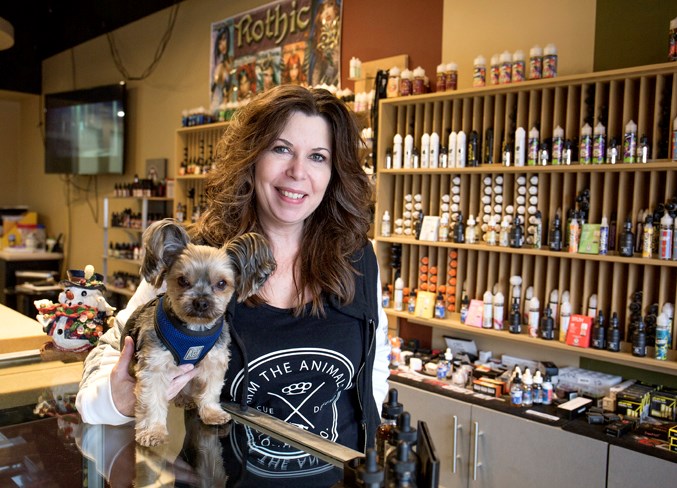St. Albert won’t be seeing any new pot shops for awhile.
The Alberta Gaming, Liquor and Cannabis Commission (AGLC) has suspended issuing any more cannabis retail licences in the province until the organization can get its stock of cannabis back up.
“We don’t know when things are going to get better. It could be a couple of months, it could be several months, it could be a year, it could be longer than a year,” said Heather Holmen, communications manager with the AGLC.
She said the organization ordered enough cannabis to stock up to 250 stores for the first six months. Since Nov. 17, the AGLC has only received around 20 per cent of the product it ordered.
As a result, both the AGLC and pot shops across the province have struggled to keep their shelves stocked. There are currently 65 pot stores open in Alberta, with three of them located in St. Albert.
Tammy Formoe, owner of Saint City Vapes, is in the process of building The Wanted Leaf at #170, 50 St. Thomas Street. She said the news didn’t make much of a difference to her.
Her vape shop is right around the corner from where the Wanted Leaf will be. She said once that store is built, Formoe will fill the shelves with accessories from her current store.
“Even if we would’ve got the licence, we would have still been in that same boat where a lot of these stores are open without product,” she said.
With the accessories moved over to The Wanted Leaf, Formoe said the vape shop could focus more on using vaporizers to help people quit smoking tobacco.
Money drain
While Formoe is setting her sights on opening the store, other applicants who pull out of the application process will end up losing money.When someone submits an application to the AGLC, a number of fees are forked over to the agency.
There’s an initial $400 application fee, a $700 annual licensing fee and another $3,000 due diligence fee. The last and most costly fee goes into administrative work for background and security checks. Whatever money is left after the administrative work is completed is returned back to the applicant.
In addition to the suspension, the AGLC has offered to return all the fees back to current applicants, regardless where they are in the process of being approved to open a store.
But applicants who choose that route will still be out of pocket for any construction costs or municipal fees they’ve paid to set up shop.
In St. Albert, it costs $419.28 to apply for a development and building permit for a cannabis retail store. If approved, the retailer can apply for a municipal business licence, which costs $854.76 per year.
The city doesn’t offer refunds for applications that have already been processed by staff. So far, 16 development and building permits have been issued for cannabis retail stores, with three of those permits belonging to the pot shops already open.
“The city will continue to engage with existing and prospective cannabis retail store operators to ensure that they are informed of any relevant municipal information required to make sound business decisions,” said Monty Killoh, business licence inspector with the City of St. Albert.
Ryan LeGassick, who’s building Rocky Mountain Roots, said the company was still determining the future of the store, which is being built at #330, 5 Giroux Road.
The Gazette attempted to reach Zane Yachimec, who is building Campbell Park Cannabis at #10, 17 Boudreau Road. The retailer did not respond by press time.
When it comes to the province’s cannabis supply, Holmen couldn’t say how much product was ordered or which licensed producers have failed to fill their quota.
The organization is also remaining mum on whether licensed producers will have to pay any financial penalties for not fulfilling their orders.
“There’s a national supply shortage, so our hands are tied,” she said. “Are we empathetic to the fact there’s investments and people’s livelihoods at stake? Absolutely. But we’re also hopeful that the market is able to sort itself out quickly enough.”




